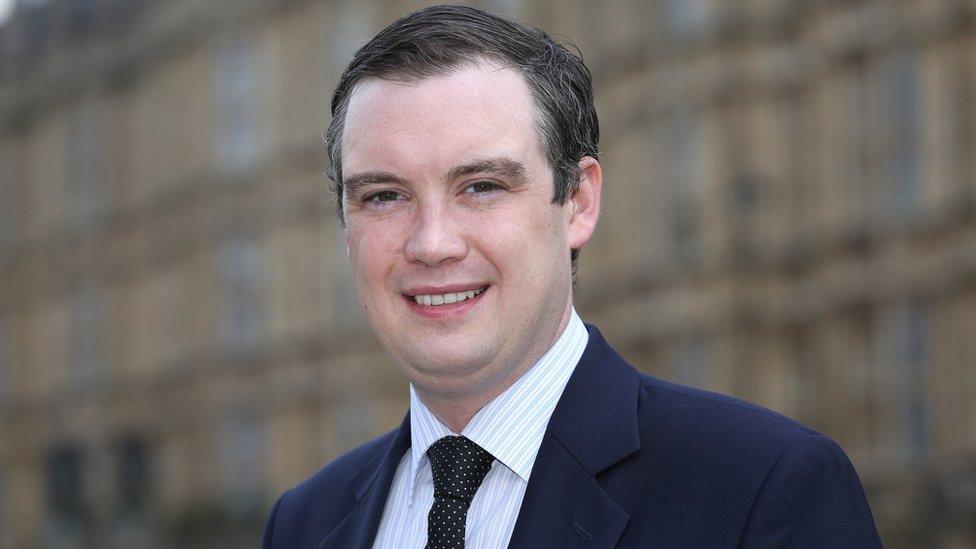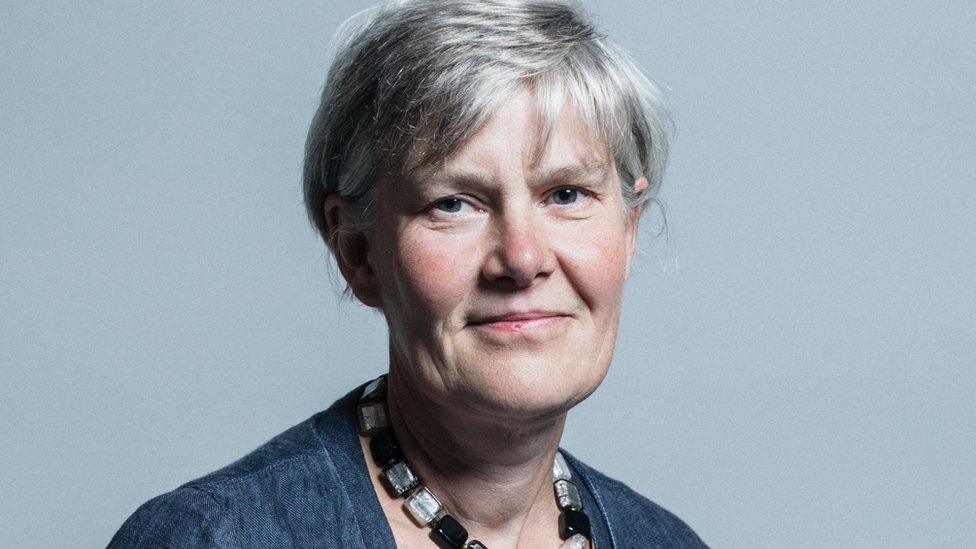'Cronyism' warning over Tory peer as student watchdog
- Published

Lord Wharton, pictured when he was serving as an MP, is being challenged over his independence
Labour is warning of "cronyism" in how Tory peer Lord Wharton has become chair of the Office for Students (OfS).
Kate Green, shadow education secretary, is calling for an investigation into Lord Wharton's appointment to chair the independent university watchdog.
She questioned what "qualifications" Lord Wharton, former manager of Prime Minister Boris Johnson's leadership campaign, had for the post.
Lord Wharton's appointment was endorsed by the education select committee.
Education Secretary Gavin Williamson said he was "delighted" at the appointment and that Lord Wharton had the right "skills and experience".
Students' value for money
But Ms Green has written to the Cabinet Secretary Simon Case questioning the choice and warning that "the higher education sector and the wider public will be deeply concerned that this is simply another example of cronyism".
She asked what professional experience Lord Wharton had for the post and questioned how he could be seen as independent when also keeping the Conservative party whip when voting in Parliament.
Ms Green suggested he should "resign the whip with immediate effect upon starting the post".

Labour's Kate Green says the "wider public" needs confidence in such appointments
The job as chair of the OfS is two days a week, with a salary of £59,000 per year, and Lord Wharton's appointment was confirmed this week by Mr Williamson.
This is England's regulatory body for higher education and is meant to safeguard the interests of students.
Among the issues facing the OfS will be whether students have received value for money for their tuition fees during the pandemic - and whether there should be refunds, funded by the government, after so much disruption.
'More latitude'
Lord Wharton, a former Conservative MP and the government's "preferred candidate", received the endorsement of the education select committee last week, but he faced questions from MPs about conflicts of interest.
The committee's pre-appointment hearing wanted to know how Lord Wharton could keep the Conservative party whip and support the government - and at the same time be seen as an independent regulator.
"You're a Conservative peer - and the question has to be asked: 'Are you going to retain the Conservative party whip or are you proposing to step away from it?'" said Mr Simmonds, a Conservative MP on the committee.
Lord Wharton indicated to MPs that he could keep both roles - having spoken to his party whips in the House of Lords about also being an independent regulator.
He said they had told him "they would give me more latitude and understand that I may need to vote against or speak against some of the things the party in government could bring forward".
But Lord Wharton told MPs: "I can absolutely assure the committee that I recognise the crucial importance of the regulator being independent."
Labour MP Fleur Anderson also questioned how an independent education watchdog could at the same time hold a party political whip in Parliament.
"All I can assure you is that I will be independent and open and say what I think when issues arise. And if that brings me into conflict with government then so be it. And if it doesn't, it doesn't," Lord Wharton told MPs.
Lord Wharton has also been an adviser of Aquind, a company planning to build a cross-channel electricity link, which has faced protests.
Ukrainian-born businessman and prominent Conservative party donor Alexander Temerko is a director of Aquind.
The OfS said the appointment was made by Mr Williamson and was a matter for the Department for Education.
On Monday, Mr Williamson said he was "delighted" with Lord Wharton's appointment, saying he was confident he had "the skills and experience to guide our students and the sector through these difficult times".
In his new role, Mr Williamson said he hoped Lord Wharton would address issues such as doing more to "stamp out low quality courses in order to level up opportunity for all, while simultaneously moving to a more risk-based system of regulation that will free our world-class universities to focus on what they do best".